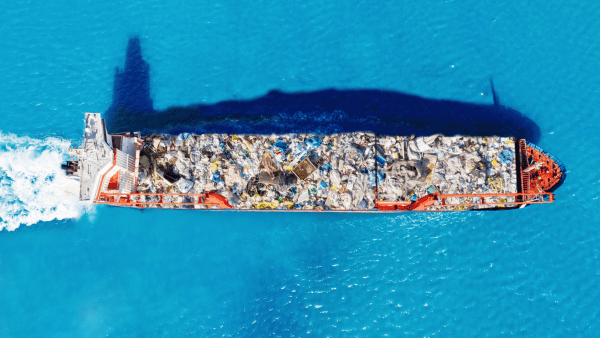Socialists and Democrats in the European Parliament are once again the frontrunner in the crucial battle for a swift and sustainable transition to a circular economy. Today, we have led the Committee on Environment, Public Health and Food Safety to approve the report on single-use plastic. The main goal we set with this report is to prevent and reduce plastic waste from single-use items, introducing a wide range of measures such as national consumption reduction targets, more bans on the most littered items, stronger measures on plastic bags and cigarette butts, having a recycled-content target for bottles, setting strong minimum separate collection targets for plastic bottles, and improving citizens awareness through better marking and obliging producers to pay for producing the litter, which have a dramatic impact especially in our oceans.
In fact, plastic makes up 80-85% of total marine litter and, based on the counts of objects found on the beaches, 43% of waste found on European beaches consists of 10 single-use plastic items, while another 27% is made up of fishing gears containing plastic.
The S&D shadow rapporteur, Massimo Paolucci, stated:
“We are proud to have pushed the European Parliament to take a major step forward to save the oceans and to spread an aware way of life that can go beyond the “throwaway” and the "culture of waste".
“The text approved today in the environment committee is unquestionably more ambitious than the proposal put forward by the European Commission. It is much more precise over the single-use plastics reduction timeframe and it paves the way for much clearer and more detailed info labels. The awareness of the EU citizens plays in fact a crucial role here to reach our target.
“Thanks to today’s vote, we have ensured that by 2025 the 90% of the plastic bottles must not only be collected but also recycled. The amount of plastic waste in the marine and oceanic environment is dramatically increasing. This is especially true for fishing gears, which - together with the 10 single-use plastic articles found most frequently on beaches - account for around 70% of plastic marine litter.
“The polluter-pays principle has been reaffirmed and strengthened. As of now, producers will have to cover the clean-up costs for single-use plastic items”.
The S&D environment coordinator, Miriam Dalli, added:
“Establishing clear targets to reduce the use of single-use plastics will lead to less littering, which most of the time ends up in our seas. Products made of single-use plastics are predominantly used away from home.
“Single-use plastics have a high environmental impact: they are not recyclable and prone to littering, requiring intense clean-ups. A shift towards alternative uses is encouraged. Consumers should be encouraged to choose reusable alternatives and industry is encouraged to create more sustainable products.
“We now call on the member states to support an ambitious and sustained reduction in the consumption of the single-use plastic products, coming up with national plans and clear targets to match these goals.”







